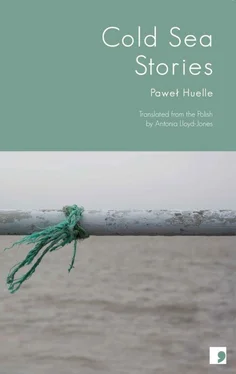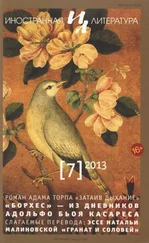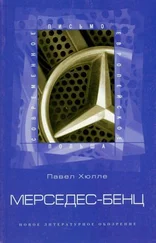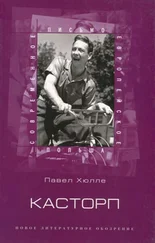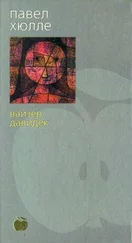However, this was in the 1970’s, when buying fish – even at Bonsack – was harder and harder. In short, days of want. And Christmas Eve was approaching.
I was delegated to make the journey like a secret agent: on one piece of paper I had the address of the fishermen from near Jastarnia. On another I had the train timetable, there and back, for the line between Gdynia and Hel. A third contained a shopping list, eventually crossed out by my mother, who had simply added: ‘get whatever there is.’
Mr Depka lived in a shed. It was a cross between the typical Kashubian cottage and something like a workshop and a storehouse: as much a fishmonger’s as a boatyard. He wasn’t even surprised when I came inside and revealed my references: ‘from Mr H, the engineer, who fixed your fishing boat motors’. But we didn’t talk about engines. Alojz Depka was excited, and over a glass or two of vodka he and Mr Rzepka were discussing something that had happened a few weeks ago, when Józk Konkel, a skipper from the maszoperia – as the Kashubian fishermen call their association – had sailed out into the bay. So, first of all, it wasn’t the time for fishing. Secondly, something had happened on the water that made Depka as well as Rzepka talk in hushed tones.
This phenomenon had haunted the fishermen in the bay for years. Sometimes – no one knew exactly why at this rather than any other moment – an orange ball appeared on the water, especially in the vicinity of the old German torpedo launch platform. Like ball lightning – wieldżi , as the Kashubians would say – enormous. No one knew what it really was. This ball had been known to collide with a fishing boat, burning it and its entire crew to ashes; it happened in 1963, in the days when Ponke was in the maszoperia . No one was saved.
Sometimes, the orange ball would stick to the prow and drag the boat a good ten miles or more at dizzying speed, to smash it to bits somewhere far off, near the Russian border or close to Gdańsk. So this particular demon couldn’t possibly have come from a decent Kashubian family of devils – home-grown and controllable. This was a truly evil one, on which nothing worked – none of the age-old prayers, nor sprinkling with holy water or casting spells. Just as I entered Mr Depka’s shed, he and Mr Rzepka were discussing the latest unfortunate incident. Józk Konkel had not sailed out far – within eyeshot, as they say. Even Hanka could see him from the shore – he hadn’t cast his nets, but just a couple of lines and was trailing them at a slow speed, trolling. The harbinger of a biting frost was rising in the glassy air, but the water was not yet full of the icy porridge forewarning that the bay will freeze.
‘Well,’ said Mr Depka, ‘it happened so quick!’
‘We only saw a flash,’ added Mr Rzepka, ‘and that’s all that was left of Józk.’
Regaled with a glass of moonshine of at least 70 percent proof, I listened to their conversation. After every accident of this kind a special commission always came, as in the Führer’s day, and before that the Kaiser’s. But no commission, whether from the military, the police, or the secret service, had ever managed to explain this enigma by filing a description of the incident and interviews with eyewitnesses in their cavernous secret archives.
‘When the Russkies tried sniffing about in Khrushchev’s day,’ continued Depka, ‘they closed our entire waters to fishing for a month. They sailed one way in that Soviet U-boat of theirs, then back the other, and found nothing.’
‘But one night,’ Rzepka was quick to add, ‘we were awoken by a terrible boom. The entire Soviet U-boat had flown sky-high, and there was nothing left but an oily slick floating on the water for a few days after. As ever, a huge, fiery ball appeared from over by the torpedo launcher.’
‘Oh no…’ Depka disagreed, ‘not at all. That time it came from the north.’
For a while they argued this point, but calmly, as if for pure pleasure.
‘But what is it really?’ I asked naïvely. ‘Is it some strange atmospheric phenomenon? Never recorded anywhere on earth before?’
Alojz Depka and Ignac Rzepka gave me a look of pity. Could a townie ever understand anything?
The glasses were filled again as we snacked on smoked Baltic cod. And suddenly, as if I had opened the pages of a great book, a story unrolled: amazingly vivid and very old.
Why did Hel – as this peninsula is called – mean the same thing in all the sailors’ languages, quite simply hell? Because the people living in the local hamlets, eternally buried in sand, were hell-raisers, real servants of the devil. During the autumn storms in particular they used to light fires on the beach as misleading beacons. The wrecked ships provided the locals with plenty of goods. They were aware of the ducal shore rights, and they knew perfectly well that everything tossed up by the water belonged to the Duke. Therefore after every disaster they caused, all the shipwreck survivors were killed – so there wouldn’t be any witnesses. Even – as happened extremely rarely – if the survivor was a woman.
Evil spirits favoured this practice. No punishment, no misfortunes ever befell these land pirates.
Only when a man in bishop’s robes escaped to shore from a tempest was the iron rule broken for the very first time. No one dared to kill a high priest. He was chained up in one of the cottages, where for ten years he was made to turn a millstone, until an official of Duke Świętopełk came riding by. He heard the prisoner chanting Latin psalms, then returning to the village with an escort, freed Bishop Sedenza, who ten years earlier had sailed as a legate of Pope Innocent IV to the Danish King Eric, and during a storm had ended up in Hel – in other words, in hell.
Duke Świętopełk’s sentence was cruel, but just. Every other man in the village went to the gallows. And a certain Depka – the pirate chief – was first tarred, then tied to the mast of his ship, where this grim figure was piled with brushwood. Right before the eyes of all those who lived on the shoreline (including the ones dangling on ropes by now) the burning ship cruised the water for a long time, propelled by an invisible current. And ever since, Mr Depka ended his story, anyone who meets the burning ship is doomed to die. Whether he’s ours, a German, a Swede or a Russki.
There were two days to go before Christmas. As I stood at the railway halt in total darkness by now, all alone, hearing the roar of the sea on both sides of the narrow, sandy spit, it occurred to me that this story had in fact been recorded by the chroniclers: it must have happened to the legate between 1243 and 1254, because those were the years of Innocent IV’s reign at the Holy See, and he was the pope who sent Sedenza to Eric IV, king of Denmark.
In the empty compartment it smelled of fish: in my bag lay some herrings, three fair-sized cod, and also a turbot – which we had never eaten before, not even on Christmas Eve. Whether Alojz Depka was a descendant of the pirate whom Duke Świętopełk’s sentence made into a living torch, I never did find out. I remember that as the train rolled slowly along the very seashore, getting close to Puck, that year’s first, thick flakes of snow appeared outside the window. The turbot was fabulous, and outstripped the cod by miles.
“I see him, but not now;
I behold him, but not near.”
Numbers, 24:17
I
THE SEA HERE is always severe. Even on sultry summer days, when the rocks are as hot as a tile stove, the bright blue surface is eternally coated in the same, forbidding chill. Bjorn was thinking about it as he drove his sheep out of the croft. There weren’t many of them – two young ewes and one old one. A year ago he had had more, but after a hailstorm, when lightning bolts had struck the plateau in quick succession, only three of them were left. Does fear destroy an animal’s sense of direction? That he did not know, but the image of the disaster endured in his memory down to the last detail: the ram – the bellwether – had run straight for the precipice and disappeared, with almost the entire flock after him. Then the stupid, black-horned ram had lain at the foot of the cliff, under a pile of other dead animals, with the waves licking at them. Bjorn had had to report it, and the entire way across the plateau he had trembled with fear. The steward was a bad man, whose lips cast nothing but curses from under his thick, flaxen moustache. So it was this time, too – when he finally grasped what had happened, he flew into a dreadful rage, seized Bjorn by the scruff of the neck, pinned him to the ground and hissed: ‘For such a big loss you will stand before the master – the master will have you hanged!’ But the squire from Ventlinge – whom Bjorn had never seen before – proved merciful. He heard out the steward, stood up from his chair, pointed to the crucifix and said: ‘He tells us to forgive’; then after a pause for thought, addressing the culprit he added: ‘For each ewe you will work out a year, and for each ram two. Then you will leave my land for ever.'
Читать дальше
